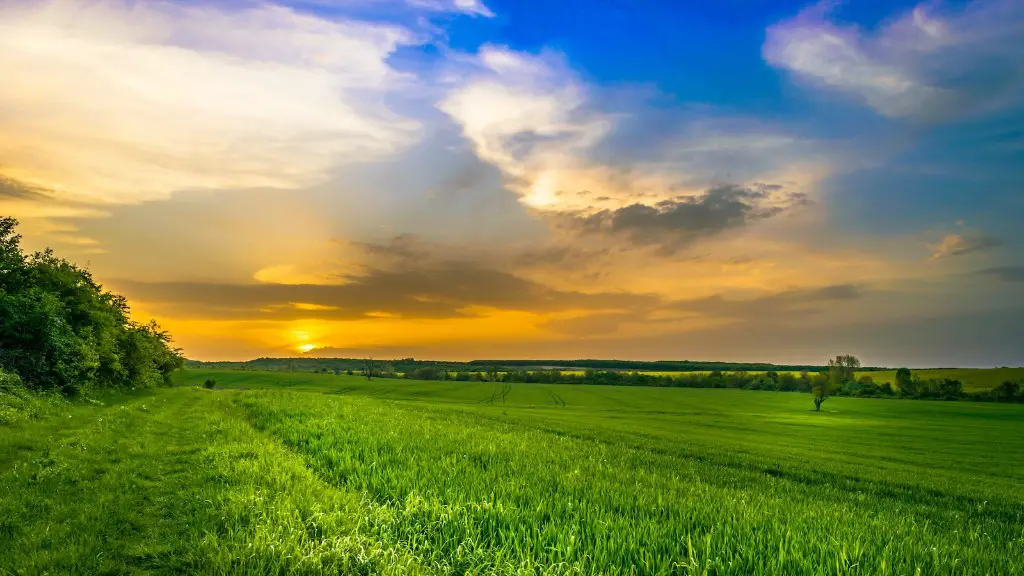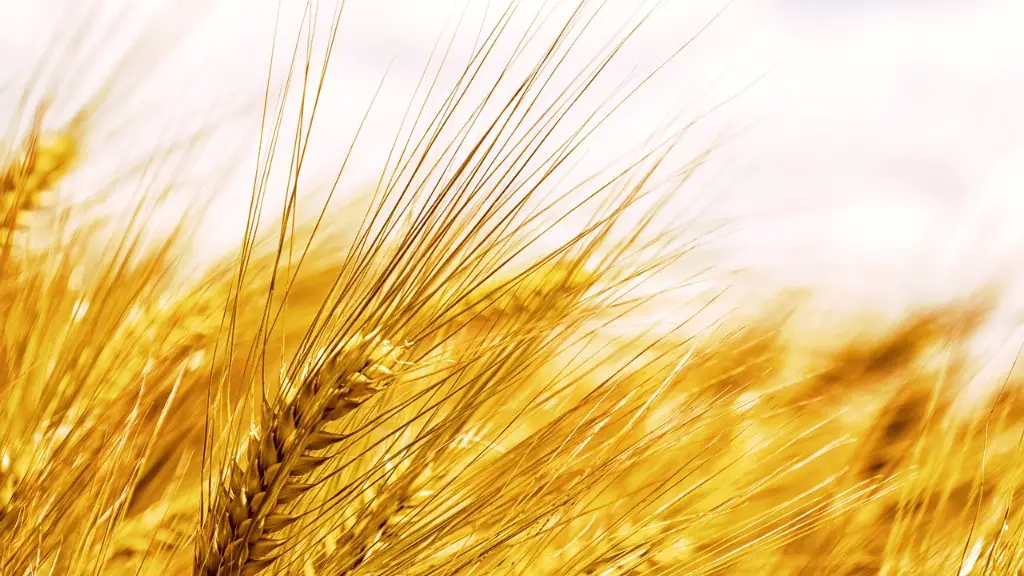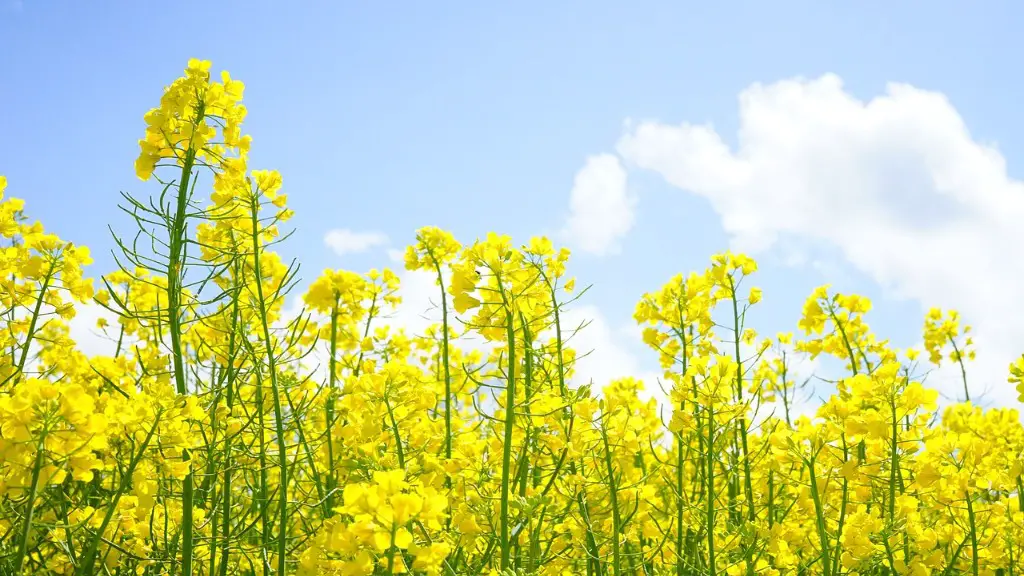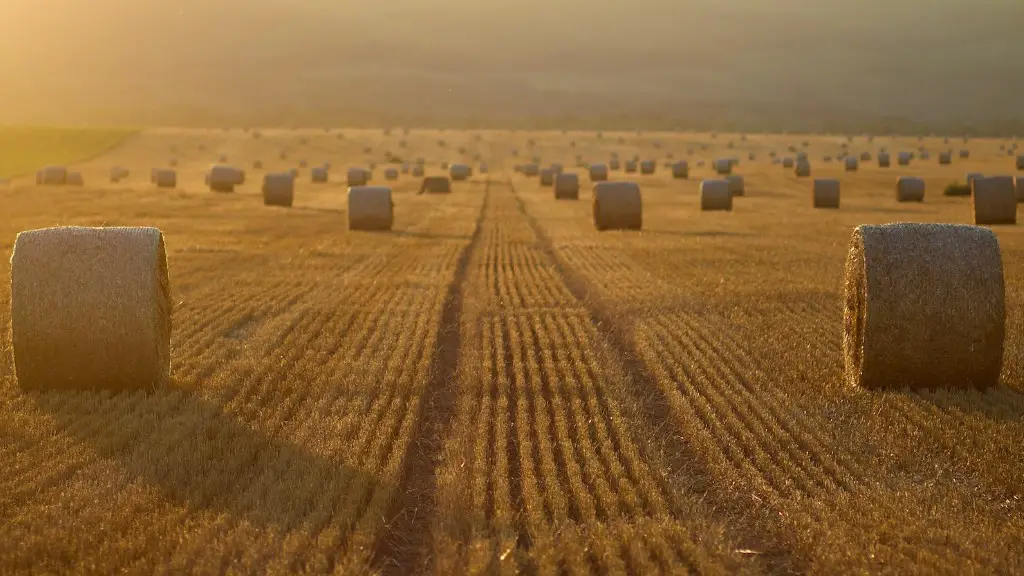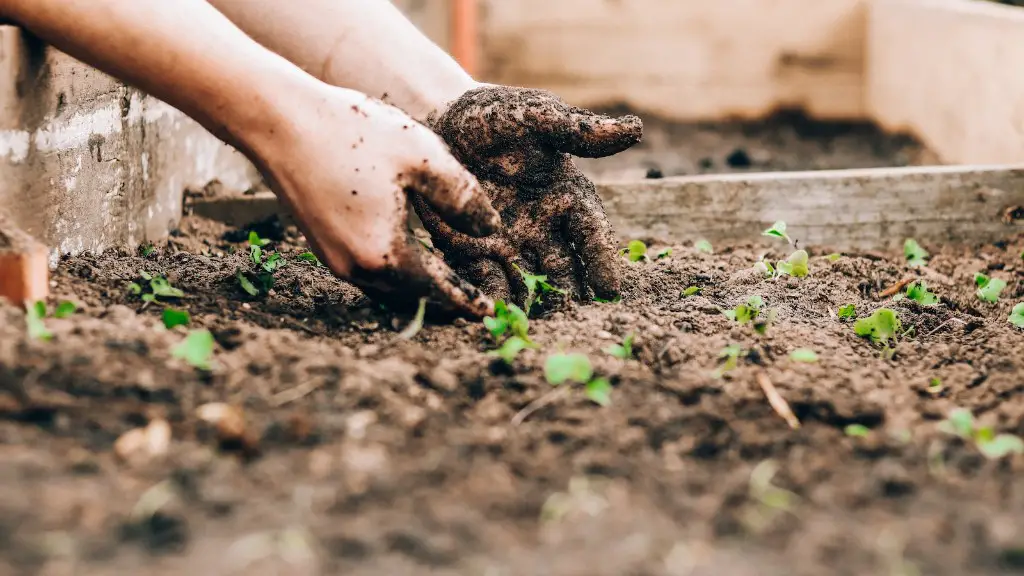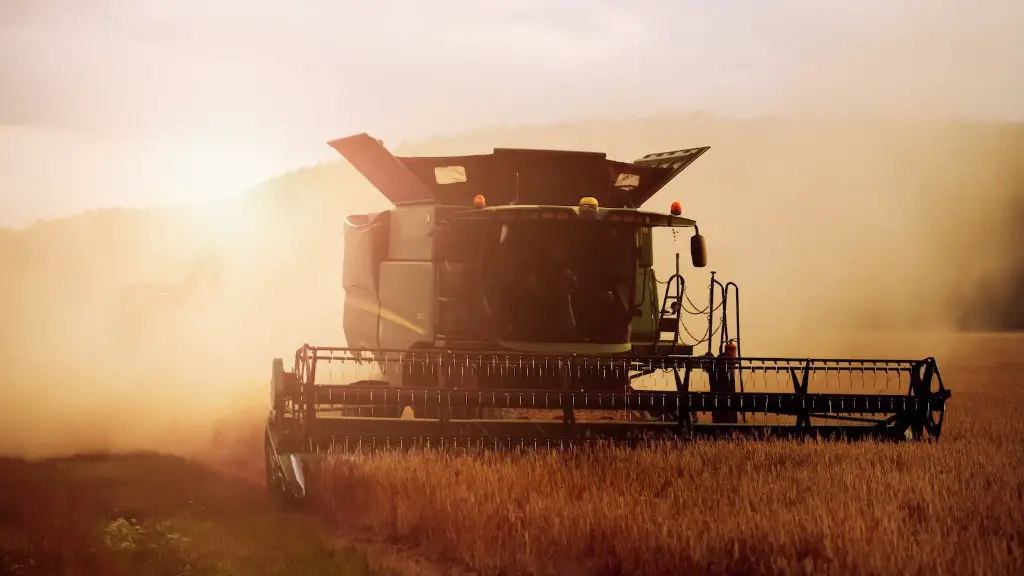Agriculture is a problem because it is the leading cause of deforestation, water shortages, and species extinction. It is also a major contributor to climate change.
There are a number of reasons why agriculture is a problem. First, it is a sector that is highly susceptible to weather changes and droughts, which can lead to crop failures and losses in revenue. Second, the agricultural sector is also very labor-intensive, which means that it is often difficult to find enough workers to meet the demands of the sector. Finally, the agricultural sector is also faced with the challenge of increasing costs, which includes the cost of land, labor, and inputs.
How is agriculture a problem?
Agriculture is the leading source of pollution in many countries. Pesticides, fertilizers and other toxic farm chemicals can poison fresh water, marine ecosystems, air and soil. They also can remain in the environment for generations.
Agricultural contaminants, including pesticides, nitrates, and phosphorus, impact ground and surface water quality, affecting both urban and rural communities. Synthetic fertilizers deplete soil health and require intensive use of fossil fuels to produce. These factors underscore the importance of sustainable agriculture practices that protect and enhance water quality.
What are some current problems in agriculture
The US farm economy is expected to be influenced by a number of factors in 2022, including supply chain shortages and bottlenecks, inflation, interest rates, severe weather, federal spending, and legislation.
Setting the table to address the triple challenge means creating a plan that addresses all three issues simultaneously. This can be done by working with farmers to increase food production while also protecting the environment and providing a livelihood for farmers. By doing so, we can create a sustainable future for all.
What is the biggest problem in agriculture?
Agricultural land is being lost at an alarming rate. According to the UN, the world has lost 1/3 of its arable land in the last 40 years. This is due to a variety of factors, including urbanization, deforestation, and soil degradation.
The loss of agricultural land results in a decrease in the variety of crops and livestock produced. This is because farmers are forced to grow the same crops on less land, leading to a loss of biodiversity. This is a major problem because it decreases the resilience of the agricultural system and makes it more susceptible to pests and diseases.
There are a number of ways to address these problems, including land conservation, sustainable land management, and the promotion of agroforestry.
Agriculture can have a big impact on the environment, both positive and negative. On the positive side, agriculture can help reduce CO2 levels, improve air quality, provide habitat for wildlife, and provide food. On the negative side, agriculture can lead to soil erosion, water pollution, contribute to climate change, and deforestation.
What were two negatives of farming?
Drought, flooding, pest infestations, and crop price crashes are all serious risks to growers who rely heavily on one crop. These disasters can cause devastating losses, and it is important for growers to be aware of these risks before they begin farming. By diversifying their crops and using more than one type of farming practice, growers can reduce their risk of losing everything to a single disaster.
Agriculture is vital to society in a number of ways. It provides food for people to consume, livelihoods through jobs in the agricultural industry, and raw materials for food and other products. Agriculture also plays a role in building strong economies through trade.
What is the #1 issue facing agriculture today
There are a few things to consider when it comes to production expenses. First, the cost of goods and services has been on the rise due to inflation and other economic factors. This has led to increased competition for resources, which has in turn driven up production costs. Additionally, profits have been strong in recent years, which has allowed companies to reinvest in their businesses and expand their operations. Finally, commodity prices have been rising, which has put upward pressure on production costs. All of these factors have contributed to the overall increase in production expenses.
Farming allowed for the domestication of plants and animals, which led to the formation of food surpluses. These surpluses allowed for the development of civilizations, which in turn led to the formation of deep class divisions between those who had access to the food and those who did not. Hunter-gatherers, on the other hand, had no stored food and no concentrated food sources, like an orchard or a herd of cows. They lived off the wild plants and animals they obtained each day. This way of life left them much more egalitarian than those who depended on farming.
What are at least 3 cons to our agricultural practices?
There are a number of reasons why factory farming is undesirable. First, it increases the risk of animal cruelty. Animals in factory farms are often raised in cramped, filthy conditions and are not given the opportunity to engage in natural behaviors. This can lead to severe mental and physical suffering.
Second, factory farming negatively impacts small business agriculture. Large factory farms have the resources to produce food more cheaply than small farms. This puts small farmers at a competitive disadvantage and can drive them out of business.
Third, factory farming creates environmental concerns. The intensive use of land, water, and other resources required for factory farming can lead to environmental degradation. Additionally, the waste produced by factory farms can pollute air and water, leading to health problems for humans and animals.
Fourth, factory farming can produce low-quality food. Because animals are often raised in stressful conditions and given antibiotics to prevent disease, the meat, eggs, and dairy products produced by factory farms can be of lower quality than those produced by small farms.
Factory farming is undesirable for a number of reasons. It increases the risk of animal cruelty, negatively impacts small business agriculture, creates environmental concerns, and can produce low-quality food.
Though there are some disadvantages to agriculture, the pros far outweigh them. Agriculture allowed for the domestication of plants and animals, which led to the development of civilization. Specialization allowed humans to become experts in various fields, and the development of art, government, and writing. Additionally, agriculture provides a reliable food supply, which is often more nutritious than what can be found in the wild. Finally, while there are some dangers associated with agriculture, such as weather damage to crops, these pale in comparison to the dangers of hunting and gathering.
Why would agriculture change people’s lives
When early humans began farming, they were able to produce enough food to support themselves and their families. This allowed them to stay in one place, which led to the development of villages, towns, and eventually cities. The increase in population was closely linked to the rise of settled societies.
The modern world depends on agriculture to feed the ever-growing population. Without sustainable agriculture, we would not be able to produce enough food to feed everyone. Climate-smart agriculture and modern genetics are two of the most important tools we have to ensure global food security.
Sustainable agriculture is the practice of producing food in a way that is environmentally sustainable. This means producing food without damaging the environment or depleting natural resources. Climate-smart agriculture is a type of sustainable agriculture that specifically focuses on mitigating and adapting to climate change.
Modern genetics is another tool we can use to improve food security. By using genetic modification, we can create crops that are resistant to pests and diseases. This allows us to produce food with less waste and fewer chemicals.
Improved farming methods are also essential for food security. By using more efficient irrigation and better fertilizer, we can improve yields and reduce wastage.
These are just some of the ways we can improve food security. It is essential that we use all of these tools to ensure that everyone has enough to eat.
Is agriculture the worst mistake in human history?
There is no one answer to the question of what was the worst mistake in human history. One possibility is that the worst mistake was the decision to try to increase food production instead of limiting population growth. This led to a host of problems, including starvation, warfare, and tyranny. It is important to learn from our mistakes in order to avoid making them in the future.
Modern farming methods have overused the natural resource base, increased use of fertilizers has led to the loss of soil fertility, the use of groundwater for tube well irrigation has led to water depletion, and modern farming methods require a great deal of capital.
Final Words
There are a number of reasons why agriculture is a problem. First, agriculture is a major source of greenhouse gas emissions, which contribute to climate change. Second, agriculture uses a lot of water, which is a limited resource. Third, agriculture is a major source of pollution, both water and air pollution. Finally, agriculture is a major contributor to deforestation, which leads to habitat loss and climate change.
The world’s population is growing at an unprecedented rate, and with it the demand for food. Agriculture is a problem because it is a leading cause of deforestation, water depletion, and pollution.
